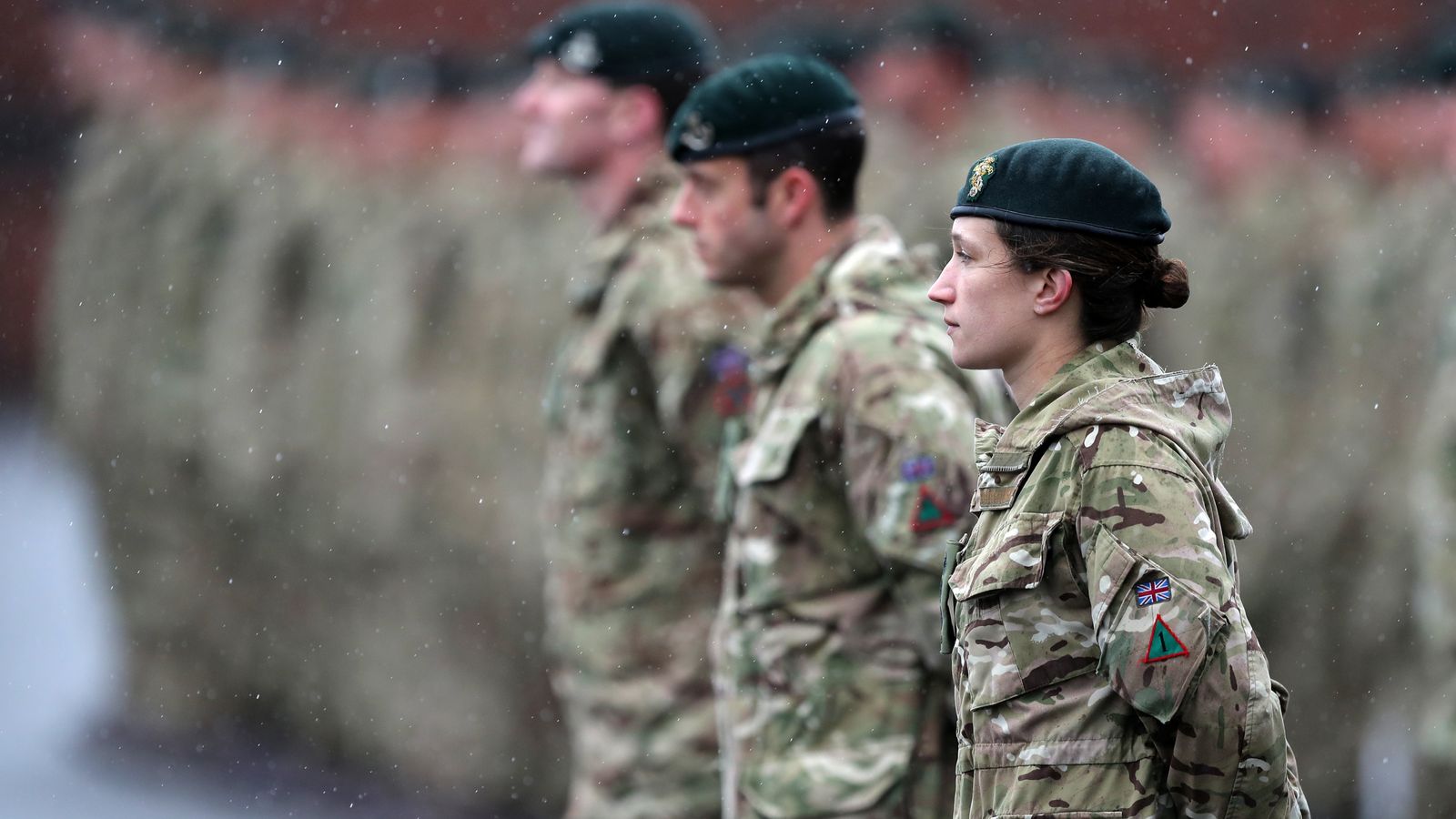The majority of women in the British Armed Forces said they have been bullied, harassed and discriminated against.
A government inquiry into women in the armed forces heard traumatising “horror stories” that painted “a difficult picture of women in the military”.
An almost unprecedented number of current and former serving women took part in the inquiry – 4,200 women (9% of the female military population).
Most (90%) servicewomen and female veterans consulted said they would recommend a career in the armed forces but more than 3,000 (around 84%) said being female meant facing additional challenges compared with their male counterparts.
The survey by the Defence Sub-Committee on Women in the Armed Forces found 64% of female veterans and 58% of serving women reported experiencing bullying, harassment and discrimination (BHD).
Most women said they do not feel the military does enough to address BHD, despite the situation being better than it once was.
Nearly 40% of 993 military women said the complaints system was “extremely poor”.
“Too often, complaints are being brushed under the carpet and there is inadequate support,” the report said.
The committee heard accounts of “unacceptable behaviours” experienced by servicewomen, including gang rape, bullying for refusing sexual advances and assault by senior officers.
Others reported “witnessing friends being attacked by groups of men but being too afraid to report it”, and said mess halls and accommodation were seen as “places of danger”.
The report said parts of the culture show “it is still a man’s world”.
More than three-quarters of serving female personnel in the inquiry said there was inappropriate, ill-fitting uniform and body armour, which placed them at more risk of harm in combat.
It is “extraordinary” the Ministry of Defence (MoD) is not getting basics like uniforms and equipment right, the committee said.
Serving mothers – often primary caregivers – make the greatest career sacrifices and sometimes leave the military entirely due to how hard it is to balance service and family life, the report said.
The numbers of parents are stark among mid-ranking officers, with 90% of men having children compared with 10% of women.
In conclusion, the report said: “The armed forces can and do provide a fulfilling career for servicewomen, with vast opportunities. But the services are failing to help women achieve their full potential.”
There are “gaps between the many policy documents and practice on the ground”.
It added: “Moreover, the MoD’s actions often give the impression that it is not a priority to make the necessary cultural changes, especially to the complaints system.
“When things go wrong, they go dramatically wrong – making it all the more worrying that this is not being focused on.
“The legacy of serving affects female veterans for years to come, sometimes negatively. We want all our veterans to feel proud of their service.
“Ex-military women need better recognition and support within transition and veterans’ services.
“Senior leadership in the armed forces and the MoD should be bold and unequivocal in solving these challenges, both for the operational effectiveness of our armed forces, and because our shared British values of fairness, equality and justice demand it.”
Sarah Atherton, chairwoman of the sub-committee, said: “While many commanding officers want to do the right thing, it is clear that, too often, female service personnel are being let down by the chain of command.
“Now that the issues for military women have been exposed, it is time we started to protect those who protect us and make changes that better our armed forces, for all who serve.”
She added it was clear serious sexual offences should not be tried in the court martial system as conviction rates are four to six times lower than in civilian courts.






















